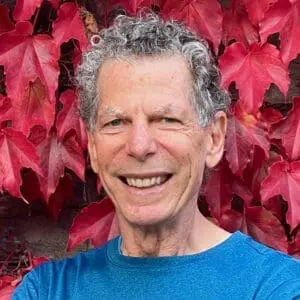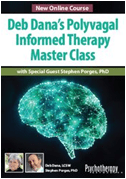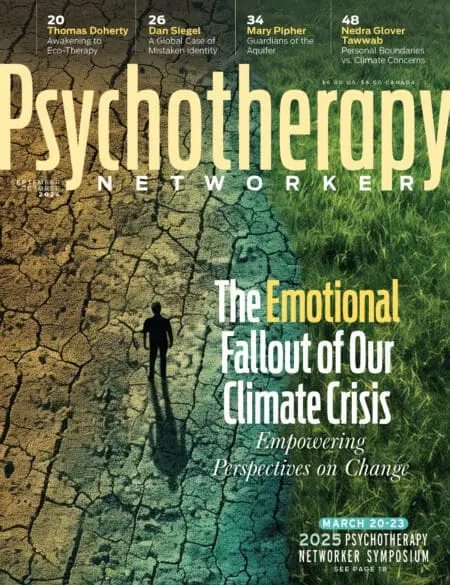Reality is merely an illusion, albeit a very persistent one.
—Albert Einstein
For someone like me, who felt pretty worthless and incompetent during early life, it’s not all that surprising that I selected a career that made me appear as if I know and understand things that might have escaped others. I really had nothing much going for me as a kid. I sucked at sports, relegated to right field during baseball games—and for good reason, since I rarely caught any balls hit my way. I couldn’t run very fast either.
But far worse was my marginal performance in school, barely able to maintain average grades. If that didn’t take a toll on my self-esteem, it surely hurt my willingness to tackle new challenges. I was a mess.
It was only much later, about the time I entered high school, that I discovered the origins of my limitations: I just couldn’t see very well. All my life, the world appeared blurry. I just assumed it was that way for everyone, that life was generally a very shadowy and indistinct place. That explains why I couldn’t hit or catch a ball very well, why I sat so close to the television, and especially why I’d done so poorly in school. In fact, I’d never learned much of anything in class that was written on the blackboard—because I couldn’t see the hazy scribbles.
You might wonder why my vision hadn’t been corrected, or why my parents or school authorities didn’t have my vision checked routinely. The truth was that I was embarrassed I couldn’t see things that apparently others could view just fine, so I memorized the eye chart during required examinations at school, sort of proud it was one of the few tests I could actually pass, even if I couldn’t really see the letters I was meant to. It wasn’t until I was attending a Detroit Lions football game with my father that my disability was revealed. There had been an exciting play on the field, resulting in a touchdown, but I’d been staring into space.
“Did you see that? Did you see that play?” my father screamed. Turning to see my puzzled expression, he pointed out toward the fog that enveloped my world. “Check out number 89,” he said and then pointed once again toward the field. I just shrugged. This was the moment that we both realized something was very wrong.
I eventually got glasses. And that did indeed make a huge difference in my life. The whole world was revealed in shapes, colors, and especially clarity that I never imagined could be possible. I became aware for the first time just how much I’d missed most of my early life, why I couldn’t see the ball in baseball, and why I missed so much in school. It was far too late for me to make up all the grammar and math that had slipped by my notice, but at least I had an explanation for why I always felt so far behind.
Perhaps you can also appreciate how that might have been a turning point in my passionate desire to make up for lost time, maybe even to become smart, wise, and knowledgeable. It’s certainly no accident that I picked a job in which what we do for a living is learn and teach things to others, especially really valuable stuff like how to make sense of what we experience in life.

If you would describe to a child (or an alien) what we therapists do for a living, one of the descriptions would mention that we know and understand a bunch of things that seem inscrutable or confusing to others. Examples might include such topics as what matters most in life, how to create greater meaning and satisfaction, how to more effectively get what you want and achieve desired goals, and why people do the things they do even if they don’t seem to make sense. We know all kinds of cool stuff—the different types of personalities, the endless ways that the mind goes haywire, predictable stages of development, how people tend to learn best, what mistakes most often get them in trouble, cultural variations, cognitive errors. The list of our specialized knowledge and heightened understanding goes on and on.
Regardless of the personal reasons and motives that led you to make a difference in others’ lives, you’ve got to admit that it’s an amazing journey to learn all the valuable ideas, skills, and knowledge that help unravel the greatest mysteries of daily life. We understand (mostly) why people engage in behavior that isn’t in their best interest. Even more critically, we know a lot of things that anyone (including ourselves) can do to change those patterns. If given the opportunity, we have the best advice to offer, guidance that reflects our extraordinary wisdom.
When reviewing the curriculum of study that’s required for this profession, some of the requirements may certainly seem boring, tedious, and even only tangentially relevant to what you intend to do. And yet every single course offers, to varying degrees, new insights, handy skills, and useful information that helps explain the nature of the human condition and why things sometimes fall apart. As trainees, we’re introduced to an encyclopedia of knowledge that provides us with a background in assessment, diagnosis, human development, ethical conduct, psychopathology, social behavior, group dynamics, family configurations, cultural variations, addictions, career trajectories, plus a range of interpersonal, leadership, and advocacy skills that make us extraordinary conversationalists, influencers, leaders, decision-makers—and healers. We’re useful precisely because we do know and understand so much about the problems of everyday life, as well as the most disturbing behavioral dysfunctions.
We are the gurus, wizards, sages, and experts in contemporary culture that deal with the kinds of personal struggles that disrupt people’s lives. We well understand those choices that end up futile and frustrating, as well as those most likely to make a real difference in behavioral functioning. Over time, we become even more experienced and expert at selecting the courses of action that may be most potent for a given person at a particular moment in time.
Even more useful—as far as our own emotional, behavioral, and interpersonal functioning goes—is that our work offers a window into the most common and salient difficulties that plague people’s lives. We become intimately familiar with all the things that spouses and partners complain about to each other. We hear endless stories about the annoyances of parents regarding their children’s incorrigible behavior; then we hear alternative narratives from the kids discussing their own frustrations. We’re exposed every single day to all the kinds of things that drive people a little (or a lot) crazy. We listen to them talk incessantly about their unrealistic expectations for themselves and others, their seeming inability to let go of things they can’t control, and their persistent obsessions about insignificant things that hardly matter. People tell us all kinds of things that knocked them off their emotional kilter.
While these conversations are taking place, we review the options for how to best respond helpfully. Is it time to confront the person or just simply listen carefully? Is this an opportune moment to make some connections to the past? Would a roleplay be useful to work this through? Or maybe it might be best to deal with some of the underlying issues that appear to consistently undermine progress. As these sorts of clinical decisions are being sorted out, there’s another voice in our heads asking other questions that are best left for another time: What is this person talking about that directly relates to your own experiences? In what ways have you been avoiding these same issues in your own life? How are you really going to help this guy when you haven’t figured out how to deal with this yourself?
Not every practitioner insists on overpersonalizing therapeutic conversations, but there’s still a temptation, maybe better said as an opportunity, to continually upgrade our own personal development, as well as professional expertise, by engaging in ongoing self-reflection. Every time a client brings up a problem, difficulty, or issue that you haven’t yet fully resolved, it’s time to get back to work on your own personal functioning. And to be clear, this may not be so much a choice as an obligation—if the goal is to truly get the most from the lifestyle of being a counselor or therapist.
Every single day, we’re faced not only with the puzzling nature of our clients’ specific difficulties, but with so many confounding aspects of human behavior in general. Have you thought seriously about how to account for peculiar phenomena such as how and why laughter, crying, blushing, yawning, or kissing evolved? Why would people knowingly risk their lives for perfect strangers? What’s the appeal of violent entertainment media? What causes mental illness? What are the purposes of feelings? What are dreams really for?
Welcome to the life of a mental health professional, in which we explore mysteries for a living, and in doing so never lose the passion for learning and accumulating greater wisdom. Every single session we conduct offers some new life instruction—that is, if we’re really paying close attention and choosing to apply what we hear to our own lives. Just think about all the facts and knowledge that are captured in our brains, stuff that earns us credit as walking encyclopedias of human behavior. Regardless of which therapeutic approaches or orientations we study, we have at our command so many interesting ideas about the nature of human existence and experience.
It’s certainly true that not every mental health professional feels passionately committed and devoted to upgrading their own personal growth and behavioral functioning alongside the progress of their clients. If we’re honest about the state of affairs, many practitioners view themselves as too busy, too “otherwise occupied,” to think much about the direction of their own lives. But those lifelong learners who try, over and over, to apply their wealth of knowledge about the human experience to their own lives will understand best not only what makes the greatest difference in anyone’s life (including their own), but what often matters the most in different circumstances. This leads to a single overarching question that will likely rule our lives and career far into the future: What sort of person and professional do you wish to be?
Adapted from Jeffrey A. Kottler, “Knowing What Makes a Difference,” 38 Lessons for Counselors and Therapists: How Personal Experiences Shape Professional Growth, p. 7-11. Copyright © 2024 by Cognella, Inc. Reprinted with permission.
Illustration by Klemenso
Jeffrey Kottler
Jeffrey A. Kottler, PhD, is a professor, psychologist, author, consultant, workshop leader, keynote speaker, and social justice advocate who has spent the past 40 years working, throughout the world to promote personal and professional development among professionals and marginalized groups.














